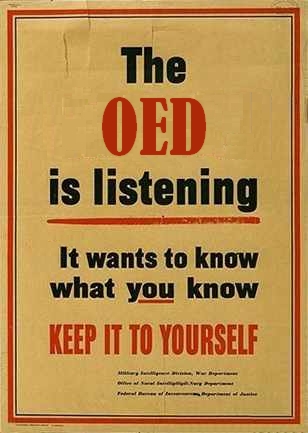About Me
The Manifesto
Good Stuff: 7/31/08
DNC beers and legislative acronyms
Wundergrammar: A North Carolina rule
Good Stuff: 6/30/08
Nice-nice
In defense of the humble ecdysiast
Roughly equal to 50 brownie points
Good Stuff: 5/30/08
[sic]
A $25 difference
Back to Main
Bartleby
Common Errors in English
Netvibes RSS Reader
Online Etymology Dictionary
Research and Documentation
The Phrase Finder
The Trouble with EM 'n EN
A Capital Idea
Arrant Pedantry
Blogslot
Bradshaw of the Future
Bremer Sprachblog
Dictionary Evangelist
Double-Tongued Dictionary
Editrix
English, Jack
Fritinancy
Futility Closet - Language
Language Hat
Language Log
Mighty Red Pen
Motivated Grammar
Omniglot
OUPblog - Lexicography
Style & Substance
The Editor's Desk
The Engine Room
Tongue-Tied
Tenser, said the Tensor
Watch Yer Language
Word Spy
You Don't Say
Dan's Webpage
Monday, August 4, 2008 12:02 PM
This has always bothered me. Unless you're actually talking about a string of letters that doesn't signify anything, it makes no sense to claim that something "isn't a word."
Alternatively, if you don't think that a word is "real" until it's appeared in the OED or the Official Scrabble Dictionary or the Google corpus, then I can see the sense of your argument, but I think you should know that you have an unusual definition of real.
(One that you won't find in any dictionary, I might add.)
The notion that a dictionary could be the arbiter of what words are "real" fascinates me. I understand that most people adopt this mindset thoughtlessly, but it would be cool to see some prescriptivism which took it seriously.
I imagine something like this:

Anyways, I found it odd that McKean took such a diplomatic stance, focusing on speakers uncertain of their own words when — as any good Grammar Warrior knows — claims that such-and-such "isn't a word" abound in pop-prescriptivism.
I could find examples elsewhere, but I'm going to pick on the folks at Everything Language and Grammar because they're professionals.
Excerpts:
"Gonna is not a word; it's merely a verbal laziness of going to." [cite]
"I use ain't as an example because we should all know that it's not a word" [cite]
"As I like to say, irregardless is not a word regardless of its presence in the dictionary—period." [cite]
What they're really talking about here is whether a word is acceptable or appropriate or cromulent — not whether or not it's "a word, period." Frankly, this is sloppy writing, because I don't have any idea what "word" means here now. I don't think that they're trying to pretend to authority and rigor that their prescriptivism doesn't have, but I can't be certain.
In contrast, the post on doable strikes just the right tone:
"I'm not saying that this is not a word; however, just because something is a word doesn't mean that it's necessarily the best way to express yourself."
This is aptly put. Anyone is free to make the case against any word as a matter of taste — in fact, we did this just the other day at Editrix — and people might agree with you that this word is ugly because it mixes Latin and Greek or that that word is pointless because we already have a better one for the same thing or that my good friend irregardless is stupid because it has a redundant affix.
However. If you want to actually dismiss certain words as non-words, turn "I don't like that" into "that's wrong" — well, then I want a definition of real word that makes sense. And I want something deontological, so that I can figure out if a word is "real" even when you're not around.
Labels: grammar politics, semantics
I like to tell peevologists that the ir- in irregardless is not a negative prefix but an augmentative one just like the in- in inflammable. (I mean, can you prove it ain't?) They don't even blink.
 zmjezhd at
August 4, 2008 6:29 PM
zmjezhd at
August 4, 2008 6:29 PM
Playing a game of chicken with folk etymology... yes, this just might be the thrill I've been looking for.
It may be that ir-regard-less (dashes added for emphasis) has a valid separate meaning, in that negating a negation is cumbersome, but within the confines of debate sometimes philosophically valid. You negate my regard for a given concept (regardless) and I find that your negation is invalid, and negligible, so irregardless your specious argument, I continue to assert my position.
It is cumbersome English, but not illegal or illogical.
Think reactive, not reactionary


